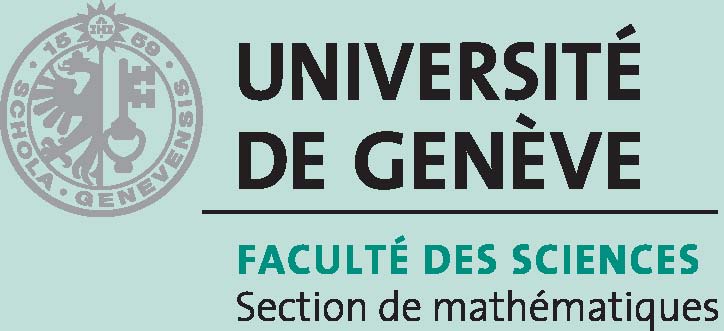
|
Felix Kwok Section de mathématiques Université de Genève 2–4 rue du Lièvre, CP 64 1211 Genève 4, Switzerland |

|

|
Felix Kwok Section de mathématiques Université de Genève 2–4 rue du Lièvre, CP 64 1211 Genève 4, Switzerland |

|
My general research interests revolve around algorithms and techniques for efficient large-scale simulations in physics and engineering, particularly when the models are described by PDEs or systems of PDEs. Typically, such simulations must repeatedly solve large, sparse linear and nonlinear systems of equations that result from discretizing the PDEs. To extract maximum efficiency, it is crucial to employ fast, robust and mathematically sound linear and nonlinear solvers, specialized to exploit both the underlying physics of the problem and well-known numerical techniques. Solver design is thus a fascinating topic that lies at the crossroads of mathematical analysis, scientific computing and engineering. It is this fundamentally interdisciplinary nature that I find particularly stimulating and rewarding.
In domain decomposition methods, the computational domain is divided into
several subdomains, and the subdomain equations are solved in parallel. An
iteration is then performed to ensure the solutions are consistent across
subdomain boundaries. The convergence rate of this iteration is highly
dependent on which boundary conditions are used along subdomain boundaries.
Our goal is to derive optimized transmission conditions algebraically. We
have shown that with a suitable (nonlocal) operator, it is possible to achieve
convergence in
a finite number of steps, regardless of how the subdomains are interconnected.
Ongoing work focuses on the local approximation of such operators and how
they affect the asymptotic convergence rate under grid refinement.
|

|
The reservoir equations, though highly nonlinear, are directional in nature
because it models fluid flow in a porous medium. Linear and nonlinear solvers
can exploit this directionality to obtain a partial decoupling of the unknowns
and solve them sequentially. The resulting Newton-based nonlinear solver
becomes more robust
with respect to time-step sizes. Meanwhile, the linear solver also converges
more quickly and becomes less sensitive to flow configurations. Ongoing
research seeks to quantify these benefits and to extend the methodology to
other problems that are directional in nature, such as Navier-Stokes.
|
Fully-Implicit Method
 Implicit Pressure/Explicit Saturation  |